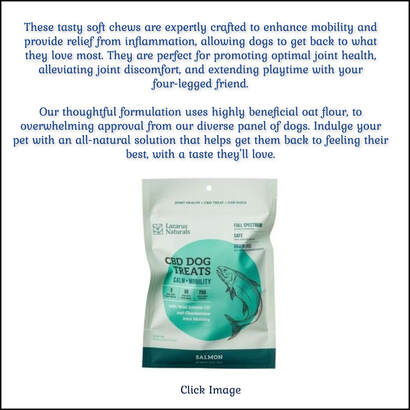|
By PetEducation
Rheumatoid arthritis occurs most commonly in toy or small breeds of dogs, generally between 5 and 6 years of age. What is Rheumatoid Arthritis? Rheumatoid arthritis is an immune-mediated disease. This means it is caused by an overreaction of the immune system. A normal immune system reacts when the body identifies a foreign protein such as proteins on the outside of bacteria. This foreign material which invokes the immune response is called an antigen. The body can react to the antigen by producing protein molecules (antibodies) which bind the antigen. The combination of the antibody bound or attached to the antigen is called an immune complex. |
|
In rheumatoid arthritis, the body mistakes some of its own protein for foreign protein. It then makes antibodies against its own protein. These unique antibodies are collectively called 'rheumatoid factor.' The antibodies and protein form immune complexes, which are then deposited in the joint. These complexes trigger a process called inflammation, which is how the body reacts to injury. In the case of rheumatoid arthritis, the body tries to rid itself of the injurious immune complexes, but manages to only create more damage to the joint. The process then becomes self-perpetuating. Eventually, the cartilage and even the bone in the joint are worn away.
What are the signs of Rheumatoid Arthritis? A dog with rheumatoid arthritis generally has several joints affected. The animal is usually lame, but not always. The lameness may be mild or very severe to the point where the animal cannot walk. Sometimes, the lameness shifts from leg to leg. In some cases, the lameness comes on suddenly and the dog also has a fever and loss of appetite. At other times, the only sign of rheumatoid arthritis is stiffness. The joints affected are swollen and painful. If the lameness has gone on for some time, there may be loss of muscle in that limb. Some dogs will have other body systems affected as well as the joints. Some dogs with rheumatoid arthritis also have kidney disease, enlarged lymph nodes, tonsillitis, and pneumonia. |
|
How is Rheumatoid Arthritis diagnosed? The history and physical exam often lead a veterinarian to suspect rheumatoid arthritis. Radiographs (x-rays) are taken and typically show the loss of bone - the bone often appears like holes have been punched in it. The joint surfaces are often irregular and bony spurs coming off of the bone are often seen. A special blood test can be done to look for the rheumatoid factor. Unfortunately, rheumatoid factor is sometimes present in dogs without rheumatoid arthritis, and not all dogs with rheumatoid arthritis test positive for the factor. (A reminder that the practice of medicine is not an exact science.) The synovial fluid may be analyzed and shows characteristic changes. Cells involved in inflammation are present in large numbers, the fluid is usually of a thinner consistency than normal and instead of being clear, the fluid is cloudy. Biopsies of the tissues within the joint can be made and show characteristic changes. The veterinarian uses the information from the history, physical exam, and tests to come to a diagnosis of rheumatoid arthritis. |
|
How is Rheumatoid Arthritis treated?
As with humans, many treatments have been tried in the dog, with varying degrees of success. Anti-inflammatory drugs such as buffered aspirin are often used. Sometimes steroids such as prednisolone are used, often on an alternate day basis. Medications that suppress the immune system such as azathioprine and cyclophosphamide are used in some cases. Gold injections have been used in dogs with some success. Careful monitoring of pet on immunosuppressive drugs is important. They will be more prone to developing infections, and some of these drugs have toxic side effects. Strict rest, especially early in the course of the disease is important. If the dog responds to treatment a gentle exercise program can be started. It is important to exercise every day for the same amount of time. Weight control is also a very important part of the treatment plan. Overweight pets will put excess stress on their already injured joints. Weight gain is likely since the pet will often be less active, so careful attention to diet is important. Some researchers have suggested that fatty acid supplements may help reduce some of the inflammation. What is the prognosis for pets with Rheumatoid Arthritis? At this point, rheumatoid arthritis cannot be cured. The long-term outlook for dogs with rheumatoid arthritis is one of trying to control the signs and prevent further injury to the joint. |
**Canine Arthritis And Joint is intended for informational, educational and entertainment purposes only and is not a substitute for medical advice, diagnosis or treatment. Do not attempt to self-diagnose or treat any health condition. You should always consult with a healthcare professional before starting any diet, exercise or supplementation program, before taking any medication, or if you have or suspect your pet might have a health problem. The opinions expressed by Canine Arthritis And Joint are not to be replaced for medical care. This website and the information contained herein have not been evaluated by the Food and Drug Administration. The information and opinions on Canine Arthritis And Joint are not intended and cannot be used to diagnose, treat, cure, or prevent any disease. This applies to people and pets!
This site uses affiliate links such as banners you may see that allows for paid commissions.
This site uses affiliate links such as banners you may see that allows for paid commissions.
Canine Arthritis And Joint © Copyright 2015-2024
Designed By Paw Prints Web Design
Designed By Paw Prints Web Design











